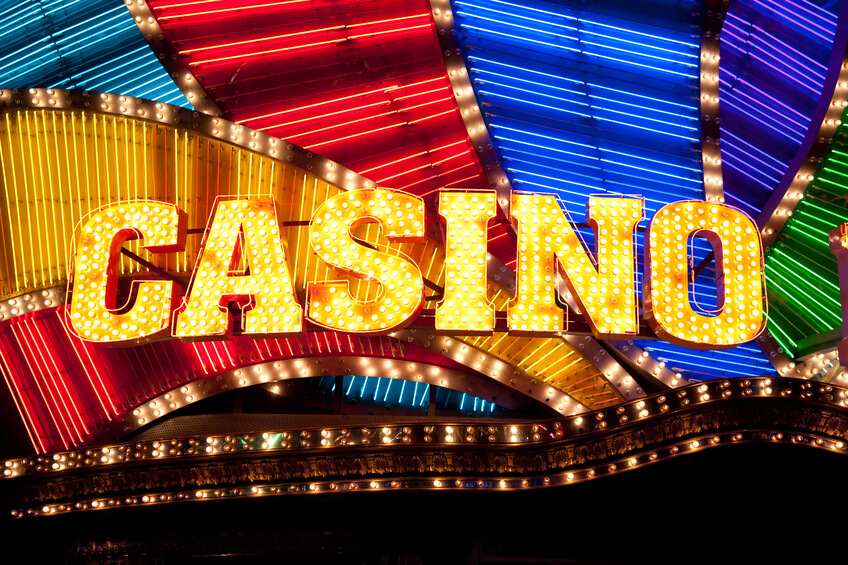Casino games have long been a significant aspect of human culture, providing not just entertainment but a fascinating reflection of our hopes, ambitions, and anxieties. From the spinning reels of a slot machine to the skill-based strategies of poker, these games embody a spectrum of human sentiments and incidents. At their core, casino games are not just a chance to make profits; they are a snapshot of life itself, where danger and gain converge and luck can change in an instant. ufapro888
As players assemble around tables or sit in front of glowing machines, they participate in a ceremony that transcends mere playing. These games mirror our instinctive desires for social interaction, adventure, and the search for fortune. They also unveil deeper truths about human nature, such as our relationship with fate and the thrill of risk. In exploring casino games, we discover not only the mechanics of play but also the intricate pattern of the human journey, showcasing our woven narratives of hope and reality.
The Mind Behind Gambling
Wagering is intrinsically connected in the psyche of individuals, appealing to various emotions and desires. The thrill of taking risks is a core aspect that attracts participants, be it it’s thrill of spinning a roulette or the excitement of drawing a winning hand in a poker game. This adrenaline is frequently likened to other forms of thrill, as the uncertainty of outcomes triggers a unique psychological response. Gamblers often become captivated by the possibility of striking it rich, leading to an irresistible draw toward casino games.
Another, an essential component of the psychology behind gambling is the concept of optimism and ambition. Participants often indulge in dreams of financial freedom and the opulent lifestyle that can accompany winning. This hope fuels their ongoing participation in gambling, as it provides a sense of purpose and the belief that a life-changing win could be just one bet away. The story of overcoming odds and achieving success resonates with many, reinforcing their dedication to play and involve themselves with these games.
Finally, social aspects play a significant role in gambling psychology. Gambling venues are designed to promote social interaction, where gamblers gather to share the experience of wins and losses. This communal aspect not only enhances enjoyment but also influences behavior, as individuals often mimic the actions of others around them. The social validation found in shared excitement can magnify the emotional experience, making casino games a mirror of not just personal desires but also shared involvement within the gaming community.
### Risk and Reward: A Double-Edged Sword
Gambling activities embody the subtle balance between risk and reward that resonates profoundly with the human experience. The thrill of placing a bet is often accompanied by a surge of excitement, as players are confronted with the chance of winning big, yet fully aware of the risk to lose. This twofold experience reflects a essential aspect of life: the choices we make often come with intrinsic risks, and the pursuit of reward can drive us to make risky moves we might not normally consider. In this way, gambling activities mirror real-world choices, enticing gamblers to gamble not just their money, but also their aspirations.
The allure of big prizes and winnings fuels a wave of hope, motivating players to envision a brighter future that could arise from a fortunate turn of the roulette or flip of a card. This optimism can drive individuals to engage in greater risks, encouraging them to take greater risks in search of economic benefit. However, just as in life, the consequences of these risks can lead to both victory and failure. The narratives of both jackpot winners and those who have lost everything at the casino demonstrate the random nature of chance and its significant impact on our existence.
Ultimately, the experience of engaging with gambling activities serves as a potent reminder of the nature of humanity. Every game played is loaded with the tension of uncertainty, as gamblers weigh the rewards against the risks. This balance not only highlights the excitement that comes with gambling but also exposes the vulnerabilities that come with the urge for more. As we journey through the challenges of choice and consequence in both the gambling world and in life, we find that the quest for gain shapes our character and journeys in significant manners.
Society and Loneliness in Gambling Culture
Casino environment is a distinct combination of social interaction and individual endeavor, reflecting the dualities of human experience. Gamblers often gather around games, sharing in the excitement of the action, rejoicing in wins, and commiserating over losses. This social aspect is vital, as it creates a sense of belonging and camaraderie among varied groups of individuals. Regular visitors to gaming establishments may build friendships and establish routines, turning the gambling venue into a alternative home where they feel linked to a greater community of players.
However, the allure of gambling activities can also result to isolation. As players become immersed in the excitement of gambling, they may isolate from personal connections or neglect to interact with the environment outside the gaming space. For some, the search of a windfall can distract from real connections, leading to loneliness. The situation of being surrounded people yet experiencing solitary is not uncommon, as the focus shifts from shared enjoyment to the individual stakes of each player’s journey.
This interaction of community and isolation creates a rich tapestry that defines casino culture. It showcases the complexity of human interactions, where joy and despair coexist. Casinos serve as both a refuge for social interaction and a platform for individual struggles, demonstrating how intimately entwined our desire for companionship and the individual quest for fortune can be. In navigating this environment, players confront their own narratives—seeking both the rush of the wager and the companionship of other gamblers, eventually mirroring the broader spectrum of human experience.

